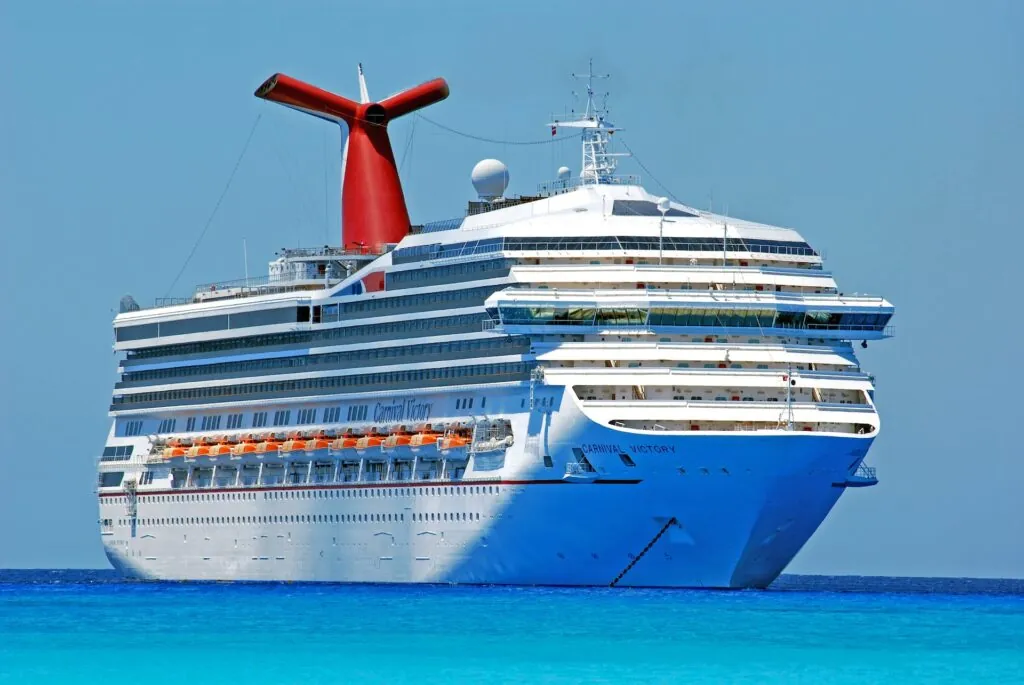Cruise Ship Maritime Accident Lawyers in Houston
Maritime law, one of the oldest bodies of legal practice, is probably not what you’re thinking about when snagging that deal on a 6-day, 7-night cruise to Aruba. Many large ships, like cruise vessels, benefit from the complexities of maritime law, using looser regulations to their advantage. This might mean more freedom for the cruise line but more risk for you, the passenger.

Call us today at 832-844-6700 for a free case evaluation with an experienced Houston work injury lawyer.
When you book a cruise, the fine print on your ticket and the waivers most passengers sign plays a crucial role. They often limit the cruise line’s liability, making it challenging to hold them accountable. This is where the Shipping Act of 1984 comes in.
Under this Act, cruise ships entering or exiting any U.S. port are considered common carriers. This means they owe the highest duty of care to their passengers and must take necessary safety precautions. The Act clarifies that cruise ship passengers can hold the ship’s owners and operators liable for injuries caused by negligence. Proving liability involves demonstrating that the cruise line was aware of the hazard that caused the injury, a complex process where a skilled maritime accident lawyer, like those at Johnson Garcia, becomes indispensable.
If you or a loved one have been injured aboard, time is of the essence, and having a knowledgeable maritime accident lawyer is crucial. At Johnson Garcia, we understand the intricacies of these laws and are here to help you navigate the challenging aftermath. Our legal team is committed to guiding you through the murky waters of the damages and recovery process.
In this guide, we will look into common types of accidents, causes, and injuries on cruise ships and the essential steps to take post-accident. We’ll also discuss how the maritime accident lawyers at Johnson Garcia can be a formidable ally in your corner, ensuring you’re equipped to make the best decisions for your situation.
Common Types of Accidents on Cruise Ships
Cruise ships, despite being a hub of relaxation and entertainment, are not immune to accidents. These mishaps, distinct from injuries, refer to unintended and unforeseen incidents that can lead to harm. Understanding common accidents aboard cruise ships is crucial, especially when considering the challenge of proving liability.
- Slip and Fall Accidents: Caused by wet decks, uneven surfaces, or cluttered walkways.
- Collisions with Objects or Other Ships: Resulting in various damages and potential harm.
- Groundings: Instances where the ship runs aground.
- Fires and Explosions: Potential hazards leading to emergencies.
- Carbon Monoxide Poisoning: Due to faulty equipment or poor ventilation.
Proving liability in these accidents involves demonstrating that the cruise line knew or should have known about the hazard. This is where having a knowledgeable maritime accident lawyer, like those at Johnson Garcia, becomes crucial. We help victims navigate the complex legal waters, focusing on proving liability and securing deserved compensation.
Common Causes of Accidents on Cruise Ships
In the complex world of cruise ship travel, accidents can arise from a variety of negligent actions. Understanding these common causes is essential for those seeking legal recourse for injuries and damages sustained aboard. The following are common causes of accidents on cruise ships:
- Poor Maintenance: Neglect in maintaining the ship’s equipment, decks, and common areas can lead to accidents. This includes everything from non-slip surfaces wearing down to malfunctioning safety gear.
- Inadequate Staff Training: Crew members who aren’t properly trained in safety protocols can contribute to accidents. Proper training ensures that all emergency and daily procedures are followed correctly.
- Overcrowding: Cruise ships that are over capacity can lead to accidents due to cramped spaces and insufficient resources for all passengers.
- Weather Conditions: Severe weather, like storms or rough seas, can significantly increase the risk of accidents on board.
- Negligent Navigation: Errors in navigation, whether due to human error or technical issues, can lead to collisions with other vessels or grounding.
- Lack of Safety Measures: Inadequate safety measures, such as insufficient lifeboats or safety drills, can lead to chaos and accidents, especially in emergencies.
- Contaminated Food Handling: Improper food handling can lead to outbreaks of foodborne illnesses, affecting many passengers.
- Recreational Hazards: Onboard activities, if not properly monitored or equipped, can pose significant risks, especially activities like rock climbing, swimming, or using gym equipment.
In each of these cases, the role of a skilled maritime accident lawyer becomes critical. At Johnson Garcia, we understand the nuances of these common causes and how they can affect your case. Our expertise in maritime law allows us to meticulously investigate and pursue claims for our clients, ensuring they receive the compensation they deserve for any accidents experienced on a cruise ship.
Common Injuries on Cruise Ships
Cruise ship vacations, offering a blend of leisure and adventure, unfortunately also come with a risk of injuries. These injuries differ from accidents in that they are specific harms suffered by individuals. Recognizing and understanding these common injuries is crucial, particularly from a legal perspective, as it shapes how compensation claims are approached and processed.
Injuries on cruise ships can range from minor to severe, each with its own set of challenges in terms of proving liability and seeking compensation. Here’s a look at some of the most common injuries that passengers might experience:
- Slip and Fall Injuries: These are common and can range from minor bruises to severe fractures or head traumas, often caused by wet or uneven surfaces.
- Food Poisoning: Resulting from improper food handling, this can lead to severe gastrointestinal issues requiring medical intervention.
- Swimming Pool Accidents: Including injuries from slips or falls near the pool, as well as potential drowning incidents.
- Recreational Activity Injuries: Activities like rock climbing or zip-lining, if not properly supervised or equipped, can result in a range of injuries.
- Burns from Fires or Explosions: These incidents, though less common, can lead to serious burns or smoke inhalation injuries.
- Physical Injuries from Collisions or Groundings: Depending on the severity, these incidents can cause various physical injuries.
In the legal context, proving liability for these injuries involves demonstrating that the cruise line or its staff failed to ensure a safe environment, leading to the injury. For instance, in slip and fall cases, it’s necessary to prove that the cruise line was aware of the hazardous condition but did not take appropriate measures to correct it.
The role of a maritime accident lawyer, such as those at Johnson Garcia, is crucial in these scenarios. Our team understands how to navigate the intricacies of maritime law, gather evidence, and build a strong case to prove negligence and secure compensation for our clients.
What Should I Do After a Cruise Ship Accident?
Experiencing an accident on a cruise ship can be distressing and confusing. Knowing the right steps to take immediately after an accident is crucial for your safety and for any potential legal action. Here’s a guide to help you navigate the aftermath of a cruise ship accident:
- Seek Medical Attention: Your health is paramount. Immediately seek medical help for any injuries. Even if you feel fine, some injuries may not be immediately apparent.
- Report the Incident: Report the accident to the cruise ship staff as soon as possible. Ensure that a formal report is made, and ask for a copy for your records.
- Document Everything: Take photographs of the accident scene and your injuries. Gather the names and contact information of any witnesses. Keep a record of all medical treatments and expenses.
- Do Not Sign Any Documents from the Cruise Line: Avoid signing any documents or providing recorded statements to the cruise line or its representatives without consulting a lawyer.
- Keep Evidence Intact: Preserve any physical evidence related to your accident, such as clothing or personal items that were damaged.
- Follow Up with Medical Care: Continue to seek medical care after disembarking, especially if you experience delayed symptoms.
- Consult with a Maritime Accident Lawyer: Contact a lawyer who specializes in maritime law and cruise ship accidents, like those at Johnson Garcia, to advise you on your legal rights and the next steps.
- Do Not Discuss the Accident Publicly: Refrain from discussing the accident details on social media or with others, as this could impact your legal case.
- Understand the Time Frame: Be aware that there are specific time limits for filing a lawsuit against a cruise line, often outlined in the fine print on your ticket.
- Consider Long-Term Effects: Some injuries may have long-term consequences. Discuss with your lawyer the potential for future medical expenses or loss of income.
Taking these steps can significantly impact the outcome of any legal action you may pursue. An experienced maritime accident lawyer will guide you through the complex legal landscape, ensuring your rights are protected, and you are compensated fairly for your injuries and losses.
Remember, each case is unique, so personalized legal advice can be the difference between securing rightful compensation and justice for your ordeal or potentially missing out on crucial financial and emotional relief in the aftermath of a cruise ship accident.
Cruise Ship Accident Statute of Limitations
When it comes to filing a legal claim after a cruise ship accident in Houston, time isn’t always on your side. The statute of limitations is like a countdown clock for when you can legally take action, and in the world of cruise ship accidents, this clock tends to tick faster than you might think.
Typically, in maritime law, you’d have three years from the accident date to start legal proceedings. But here’s the kicker: many cruise lines have their own rules, and they’re usually tighter. We’re talking about a window that could be as short as one year, according to the fine print on your ticket.
And there’s another catch. These cruise tickets often require you to give the cruise line a heads-up about your claim in writing within a much shorter period – think six months or even less. It’s important to note that these conditions can vary based on the cruise line, the jurisdiction, and the specific circumstances of the accident. Anyone considering legal action after a cruise ship accident should consult with a maritime law attorney to understand the specific limitations and requirements that apply to their case.
So, if you’re thinking about taking legal action after a slip on the lido deck or a mishap during an onboard activity, it’s important to act fast. Waiting too long could mean waving goodbye to your chance for compensation.
How Can the Cruise Ship Maritime Accident Lawyers at Johnson Garcia Help?
Navigating the complexities of a cruise ship accident can be overwhelming, but you don’t have to face it alone. The Houston-based lawyers at Johnson Garcia bring over 35 years of expertise in maritime law, including Jones Act maritime injuries, to every case we handle. Our approach is rooted in empathy and relentless advocacy, treating each client with the care and dedication of family.
Understanding the unique challenges of different types of maritime cases, we’re committed to fighting for the justice and compensation you deserve. Contact us for a free consultation, and let us help you navigate these turbulent waters with confidence.
Related Pages
FREE CASE REVIEW
START YOUR JOURNEY TOWARDS JUSTICE
No Fee Unless We Win!
Johnson Garcia LLP
-
7324 Southwest Fwy, Suite
545 Houston, TX 77074 - 832-402-9332
- Available 24/7
FREE CASE REVIEW
START YOUR JOURNEY TOWARDS JUSTICE

